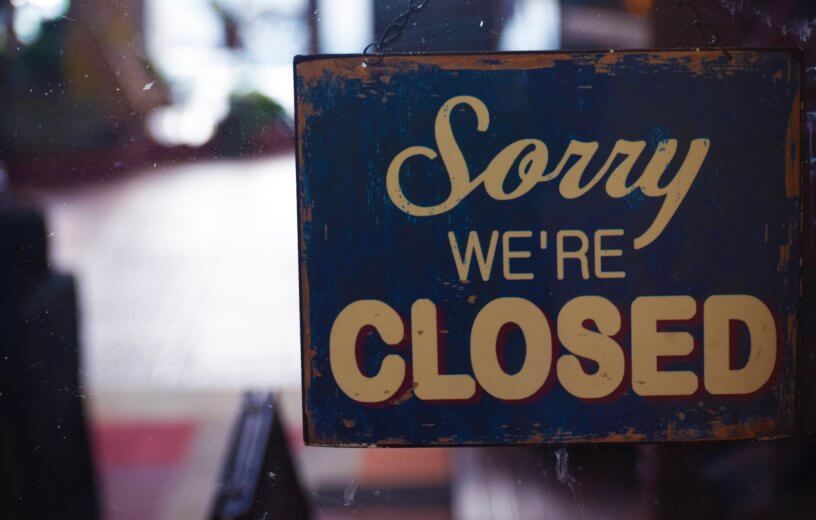BLOOMINGTON, Ind. — American companies are finding themselves folding far sooner than they have in the past, suggests a recent study conducted by researchers at Indiana University.
The odds of an average American company staying in business more than five years have declined significantly since the 1960s, and the trend holds true for businesses lasting 10, 15, and 20 years, the study shows.
“The history of American businesses was centered around these family enterprises,” says lead researcher Matthew Josefy in a university release. “The whole reason of incorporating was so the organization would live longer than the founder, giving them a sense of immortality. Here’s the irony: These large corporations aren’t even going to live as long as the founder, much less get passed down to the next generation of owners.”
These findings are based on an empirical data analysis of almost 32,000 publicly-held companies between 1960 and 2015. The findings suggest that firm age today has little to no bearing on how it will perform and survive in the future.
In looking at trends over the past 50 years, the authors found that companies that go public, or list their business on publicly-traded marketplaces, had about a 50-50 shot at surviving for twenty years or more in the 1960s. In the nineties, those odds fell to about 20 percent. Meanwhile, firms in the sixties had about an 80 percent chance of surviving for 10 years. But for companies born after 2000, that percentage dropped to 50 percent.
Companies in the past were run with the expectation that they would be handed down to the next generation. Today, companies are more temporary in nature. The researchers suggested that the corporation is becoming more disposable, mirroring other emerging aspects of American culture in the 21st century.
“We believe this trend reflects an important shift in our understanding of the very DNA of what constitutes an organization,” the authors write. “Short-lived, temporary organizations that rapidly accomplish a complex task and disband on its accomplishment are increasingly common across a broad range of industries.”
The authors also believe that another reason is that more companies are merging or being bought out by larger firms. That’s likely because of the rise of startup enterprises since the millennium. Of course, with entrepreneurs often moving quickly from one idea to the next, that could still mean new opportunities for workers.
“We live in an environment where starting and liquidating a business is quite easy,” argues co-author Rene Bakker. “Many young firms today seem destined to become ‘organizational supernovas,’ which burn brighter but die quicker.”
The full study was published in the March 2018 edition of the journal Academy of Management Annals.
